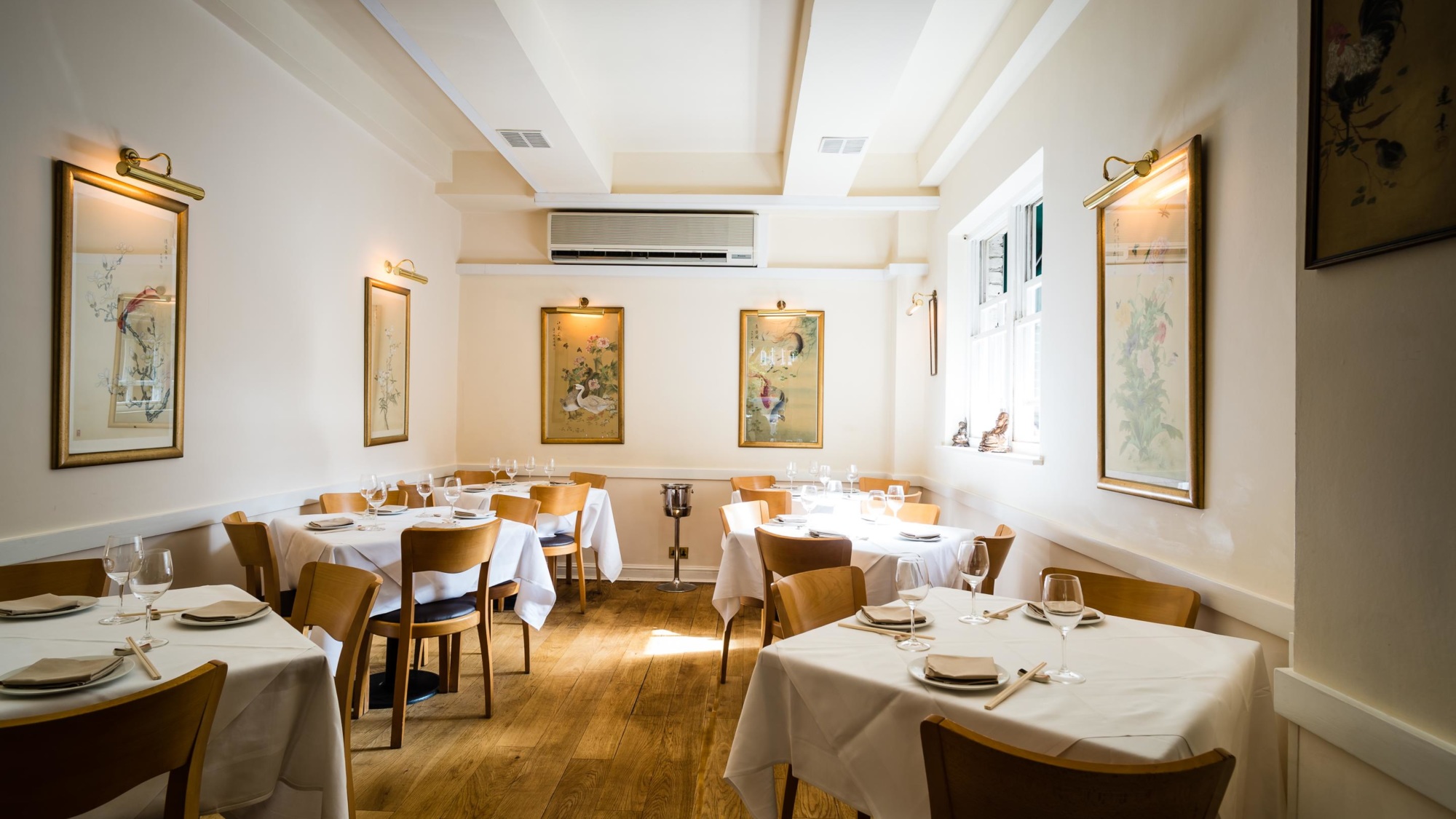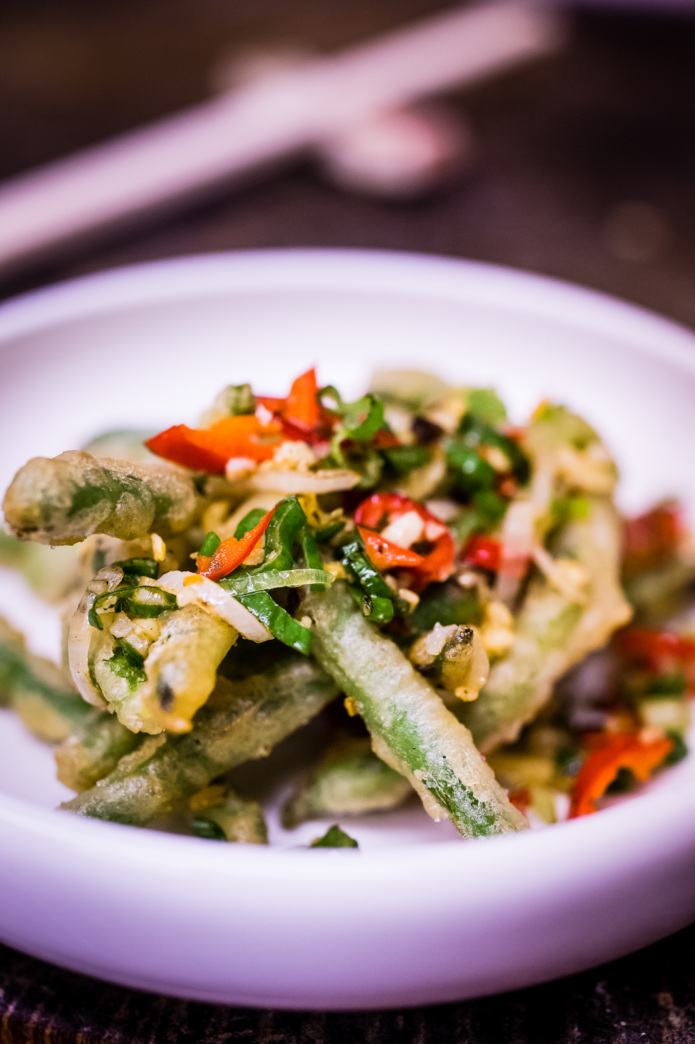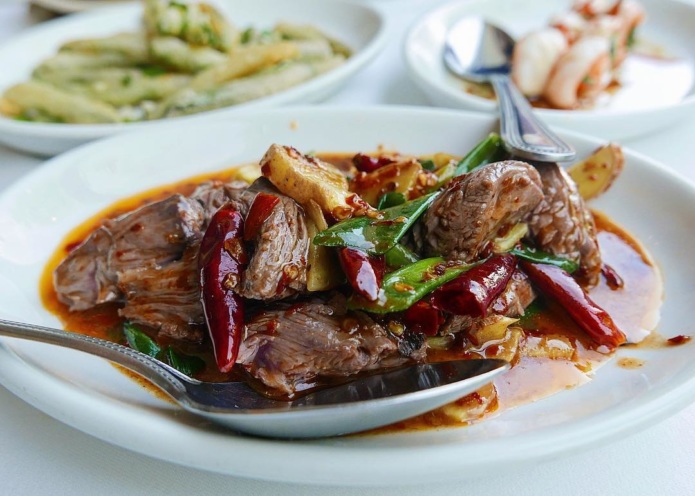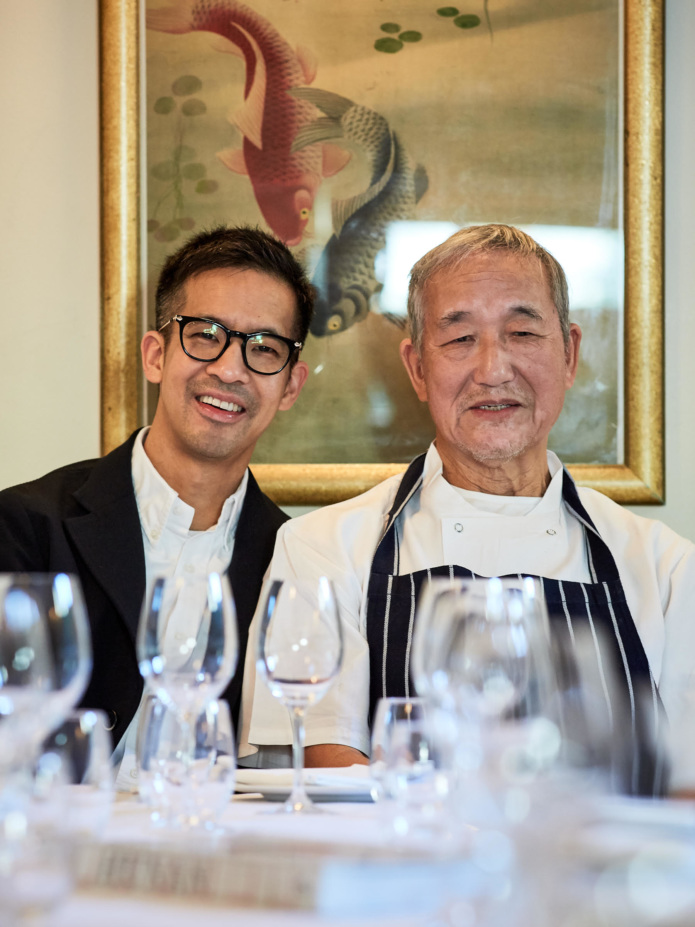Hunan
Belgravia
Close

Published:
A few miles outside of Fongtian, a small village on Taiwan’s East Rift Valley sheltered between coastal mountain ranges, is a mine noted for the production of a single, perfect thing.
Over years, unfathomable pressure and heat generated by the movement of the vast Philippine and Eurasian tectonic plates forced sodium and aluminum together, eventually metamorphosing into a precious mineral discovered by locals in the 1960s and 1970s. In 1976, at its peak, this discovery turned a sleepy backwater into the richest town in Hualian province, and Taiwan, for a short while, into the world’s largest producer of a single, coveted gemstone: jade.
Not all minerals are destined to become gemstones. Though subject to the same environmental stressors — namely heat, pressure, and time — the vast majority, as they cool, form plain old rock. Plentiful and dependable, but also ubiquitous and unremarkable.
Like the prized mineral of its owner’s homeland, the London restaurant Hunan was the eventual product of years of process, trial and error, and sheer pressure. The result is a shining example of a restaurant with an inimitable style of running the show — a single, proto-tasting menu consisting of over a dozen exquisite morsels of Cantonese, Hunanese, and Taiwanese-inflected cooking; a wine list worthy of the best dining rooms in the city; and an uncompromising driving force in its owner, known affectionately as Mr. Peng. Idiosyncrasies that would have crushed other restaurants turned out to be Hunan’s calling card, crystallising the stubborn vision of a single man into one of London’s most special dining rooms.
In many ways, Hunan defies the usual rules about great restaurants. As Alan Bell, a retired media executive and a regular for over 25 years, points out: “It’s small and unimpressive from the outside, and not flashy on the inside. But rarely has anyone cooked so brilliantly the tiny morsels that constitute a meal at Hunan as their kitchen does.”
*****
Born in Taiwan in 1945 to a Hakka-speaking family, Y.S. Peng (his initials have never been publicly revealed) trained as a chef against his father’s wishes, emigrating to Britain in the 1970s after applying for Japanese and British visas simultaneously — the latter arrived first. Along with his wife, he opened Hunan in 1982. Unable to afford the higher rents in Soho, where London’s modern-day Chinatown was being established, Peng established the restaurant in a pretty square on Pimlico Road, on a strip littered with cafes and antique shops.
“That strip, it wasn’t super desirable,” laughs Michael Peng, the founder’s son and co-owner. “There was another greasy spoon next door, a place called Peter’s, a really famous spot for black cab drivers.” Having cooked for the Knightsbridge crowd at Tai-Pan, and keen to steer away from Chinatown’s mostly homogenous Cantonese fare, the elder Peng chose to focus on a succinct à la carte menu inspired by his roots in Taiwan. “He felt that he could only deliver the quality if he focused and kept the menu short,” Michael explains.
What became the restaurant’s calling card — eventually dubbed the “Leave It To Us” menu — was initially offered alongside. Presented with two choices, diners who ordered from the à la carte would run into the senior Peng’s stubbornness. “He had a tendency to give them something different”, Michael recalls. “Some people got it, some people didn’t get it — a lot of people didn’t get it. He would get into massive arguments … It just got to a point where we decided, if you want to do this all the time, let’s just get rid of the à la carte.”

As it stands today, the menu asks a single question of the diner: Any allergies or dislikes? The rest is, literally, left in the hands of the kitchen. A few dishes are mainstays – delicately battered and fried green beans, accented with garlic and chilli “chips”; playful lettuce cups brimming with stir-fried pork mince; and a decadent platter of banana fritters and ice cream to finish. The restaurant became renowned for allowing diners to relinquish control to Mr. Peng, and on a given night, guests could feast on anything from Dover sole and hand-pulled lobster noodles to a fiery stir-fry of beef ribeye.
And although the dining room possesses an upscale calm, attention from Michael and his team is relaxed and no-nonsense in a way that befits what is, at heart: a family-run Chinese restaurant. Awash with daylight, the tables at the front of the restaurant make for dreamy long lunches; meanwhile, tables set further in are convivial, and the stuff of late night stories. Famously, Michael’s paternal grandfather, an expert in feng shui, blessed the dining room’s layout — until social distancing measures were enacted, the furniture didn’t move in almost four decades.
While today it’s celebrated as a forerunner of Chinese fine dining, established a good two decades before the arrival of eateries like Hakkasan, not to mention an early tasting menu years before their ubiquity at chef-driven restaurants, the senior Peng’s insistence that he knew better was catastrophic for business at the time. “It was very extremely difficult at the beginning, back in the ‘80s, to do what he wanted to do,” Michael says. “A lot of people told him that he wasn’t going to make it in that area. And he nearly didn’t – I remember the business nearly went under two or three times when he first started.”
*****
If time was necessary for Hunan’s cuisine to mature into the restaurant it eventually became known as, and for diners to eventually catch on with Peng’s simple, but significant, ask — of faith in him, and his skills — then the pressure of running the business day to day was the catalyst to help Michael, his son, rise to the challenge.
Having grown up in the restaurant, Michael lived above the restaurant with the staff and his family, a factor he says was crucial. “I’d like to think that our customers come back primarily because of the food, but also the fact that it’s a family business,” he explains. “When I took over the business, [my father] said to me, “you need to run it the way I ran it.” So I literally slept with the phone underneath my pillow. If you called, it was me or another family member. From when you booked or walked in, ordered your food, chose your wine, or said goodbye.”
Despite training at Kingsway College to become a chef, Michael was initially resistant to his father’s wish for him to take over. Eventually, he admits that filiality was the deciding factor in his choice to continue his father’s legacy. “In the West, you just do what makes you happy, don’t you?” he says. “In Chinese culture, it’s all about family and doing things sometimes you don’t want to do, to keep things in balance, and out of respect for your family, your parents, and your elders.”
Having newly taken over the business and enduring what he calls “the worst years of my life,” the younger Peng found his raison d’être in an area that would serve to redefine the restaurant and introduce it to a new clientele. “I was working crazy hours. We had no cleaners, no receptionists, so I was cleaning the whole restaurant, just the two of us, every morning. Answering the phones – doing everything,” he recalls.
“The turning point was, I decided that if I was to make it work, I would have to find an element of the job I liked. The turning point was the wine.”
*****

Today, Michael’s wine list sets Hunan apart from the vast majority of restaurants. Critic and epicurean titan Andy Hayler wrote in 2019 that “this is very much a list for serious wine lovers,” adding that “Hunan may have the best priced wine list in London.”
Much of that is down to Michael’s own zeal for wine. Spotting a gap in the market for Chinese restaurants with serious wine lists, he seized the opportunity when a regular guest offered to show him the ropes, eventually acquiring an impressive collection with minimal investment. Forming relationships with key suppliers, buying at auction and en primeur, he took Hunan from a single supplier to 38 different suppliers before lockdown started. In particular, the wine list is legendary for its astonishing markups on rare and notable vintages, attracting serious wine drinkers.
“I’m like my father in the sense that I want guests to try different wines – you might be drinking Sancerre, or Pouilly-Fumé, or Chablis – but when you try this viognier, and it’s something you might not have had before, or you had before and didn’t like,” he immediately enthuses. “I think it adds to the experience. If someone’s had a really good meal, and a wine that they’ve really enjoyed and never had before, it sticks doesn’t it? And it keeps them coming back, so they’ll remember that experience. For me, that’s what we try to do.”
*****
As Hunan’s food evolved over the years, and the pressures of running a restaurant shaped his son, it goes without saying that the glowing furnace — and the last word — in the restaurant’s metamorphosis from eccentric oddity to treasured establishment was always Mr. Peng himself.
There’s much to be said about the elder Peng, whose fingerprints — from the food and service, to the intimate trust between restaurant and diner — can be found all over Hunan. While his culinary skill and determination is legendary, what’s perhaps most remarkable is the fact that he refused to accept a lower status or denomination in his cuisine, demanding his food and talent be respected on equal footing as his European peers. Thirty years later, those battles are still being fought.
“What really distinguishes Hunan from other Chinese restaurants is that Mr. Peng was a chef before he came to the UK,” observes writer Qin Xie, author of Hunan: A Lifetime of Secrets from Mr Peng’s Chinese Kitchen. “A lot of generic Chinese restaurants were people who may not necessarily have been in the restaurant trade; for immigrants, it was an easy way to make a living if you didn’t speak the language. Whereas in the case with Mr. Peng, he started training to be a chef when he was 13, so it adhered for life. And I think it’s the kind of passion you pass on to your children, and that’s very different from being an immigrant and trying to make a living.”

As far as establishments that have stood the test of time go, Hunan is as good a representation of one man’s stubborn self-belief as exists anywhere. Peng’s insistence that he knew best shaped the trust between Hunan and its guests, a gentle, persistent pressure that those who know him well believe stems from generosity, not ego. “In many ways it embodies a family business,” says Qin Xie, “but I think he’s very driven by the fact that he wants to give the best, but he wants to do it his way.” His son agrees: “He was determined to give people the best. But it was his best, not your best.”
Despite several failed attempts at retirement and relocation, Peng regularly found himself returning to the kitchen at Hunan to cook for guests and to re-insert himself into the restaurant’s daily rhythms. A diagnosis of cancer in 2018 finally gave him reason for pause. “It really hit home. That made him realise that maybe he should slow down a bit,” Michael says, before quickly adding: “He’s fine now, and he’s realised that he wants to enjoy his time with my mum.”
While he’s taken a major step back (he’s been shielding during lockdown), it’s clear that Hunan will always be a huge part of Peng’s life, and vice-versa, whether he’s there or not. “Just last week, he called me up and he said, ‘I’ve got all this food that I’ve made for the restaurant. I want you to give it to customers,’” Michael chuckles. “So I went up there and I picked it up, brought it back and it had instructions on it. He’s still doing stuff like that.”
David Paw is Resy’s international editor. Follow him on Instagram. Follow Resy, too.